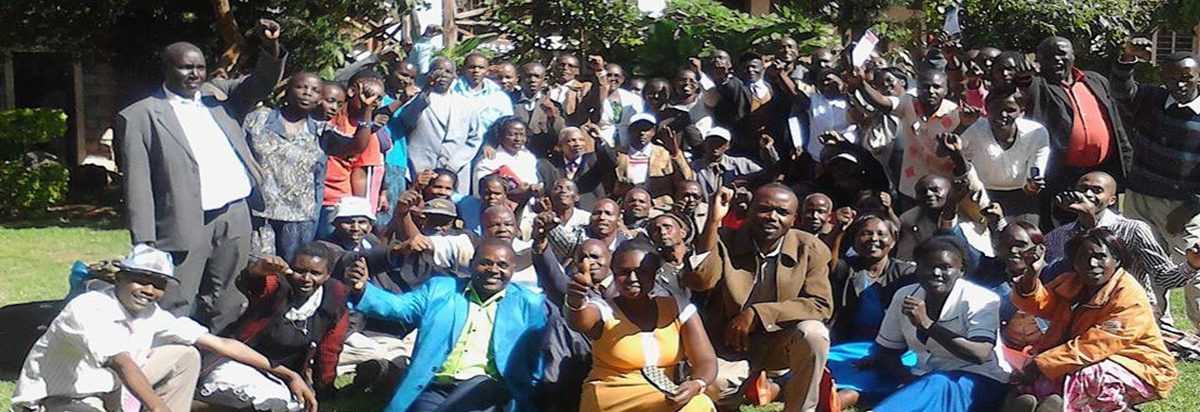To all the small Christian communities’ members and their pastors; our parishes are marked with a poor ratio of parishioners to priest due to a big number of Christians and sometimes a parish has one or two priests. For this reason, the attention given to every Christian is presumed to be given to all at the parish and prayer house levels. As a result, there is a danger of the parishioners getting lost in the crowd and this is a big problem we shouldn’t just assume and let it continue. It is good to know that not every Christian follows the homilies given on Sunday attentively and not every Christian finds it necessary to visit the parish priest to pour out his/her heart in regard to lived experiences in their Christian life of faith. Therefore, it is good to start acknowledging how small Christian communities are very important and the necessary outlets for each person who comes to Sunday liturgy with personal needs and concerns, with longings, struggles, and triumphs. Each comes with a story to tell. In other words, who will listen to this story in a liturgical gathering so large and impersonal?
A small Christian community is one of the powerful outlets where these Christians can share their story, feel at home in the church, can exercise their baptismal calling to care for one another and live out gospel values in their personal and family lives. In the small Christian communities, there are ministries to the needy, sick, elderly, to the word, music, and prayer. These ministries empower the members to exercise their baptismal calling and the universal call to holiness.
In the small Christian communities’ gatherings of 6-15 members who meet regularly every week, they manifest their commitment to being a parish that GATHERS, SHARES, AND PRAYS.
Gathering: it makes sense to gather in the light of ‘qahal Yahweh’ the Assembly of God convoked and that becomes more conspicuous and complete in the Sunday liturgical celebration. Small Christian communities gatherings within the day of the week are meant to make the Sunday gathering a strong and real ‘qahal Yahweh’, Assembly of God.
Sharing: when Christians meet on a weekday, they tell their stories, share their experiences of God working in their lives, reflect on scripture, and challenge each other to live out their call to put the gospels into action, participate in common rituals of prayer and nourishment and support each other in a life of Christian service. As a result, they grow in a deeper relationship to one another and to their God. At this level, these Christians are theologians in their sharing of the lived experience of faith and their theology remains vague and oral. The presence of the priest makes the difference and brings a challenge to them to broaden their horizon of faith and theology. The experience of faith-sharing and action-response eventually with the help of the pastor becomes integrated into the parish organizations, ministries, and so forth.
Praying: This is done in the imitation of the Lord who often saw the need for prayer. When Christians meet in the small Christian communities for prayer, it becomes a response to the Lord who said knock and it will be opened for you, seek and you will find, ask and it will be granted to you ( Mt 7:7). He also taught us the prayer of calling God our Father (Mt 6:9-15). Small Christian community prayer is done in the light of the shared word of God and the lived experience of God and in view of the response through Christian action. Prayer deepens personal faith and its development. Prayer transforms the heart of the believer and at the same time becomes medicinal to the soul. Therefore, healing masses, thanksgiving masses, and votive masses are relevant in the small Christian communities. Can this be realized without the presence and the support of the priest? A priest is a man of prayer. He celebrates mass for the small Christian community members which they cannot do on themselves and on Sunday he celebrates mass for the small Christian communities of his parish when they meet together to live these three contexts.




